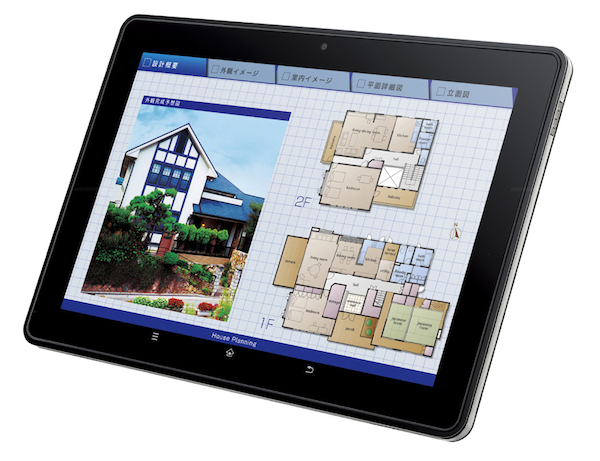Channel is missing tablet opportunity


Resellers and the channel are missing an opportunity to provide secure tablet and smartphone packages to big business.
With the consumerisation of IT, corporations are under increasing pressure to accept consumer devices on their networks. Specifically a case is being made for Apple’s iPads. Executives want to bring their tablets into work and connect to the local networks.
However corporate IT departments are incredibly unhappy with the trend, partly because Apple products do not work well with Windows based networks but mostly because the consumer based products do not meet the security standards required.
Today a Swedish company http://news.techeye.net/security/cops-can-crack-a-smartphone-in-minutes announced that it was selling software to law enforcement which could crack an iPhone within two minutes.
This is mostly because smartphones and tablet are protected by what many IT department’s would consider token security. Because of the closed structure of Apple, there are lots of people who are dedicated to jail breaking the operating system and lots of software available to do just that. This in turn creates a market for hacking software.
Getting mobile products into an IT department should be a tough sale, if they were not already facing pressure to come up with mobile products.
Traditionally RIM had been doing well in business because its encrypted network friendly products met most corporate security standards. But lately the company has dropped the ball when it comes to the more consumer oriented products which are being demanded by corporate board-rooms.
This has lead many to consider the iPad, often against their own better judgement. In the case of government IT systems, for example, the adoption of expensive Apple gear particularly by local councils, automatically creates a political storm http://www.bbc.co.uk/news/uk-england-10859748 .
Apple resellers, which have been becoming an endangered species as the company has developed its own direct sale channel, should have a tough time selling into an environment where they don’t have the security, the network capability and price constraints. At the moment though, they appear to be all that is out there.
Resellers could be creating mobile packages for corporations based around security enhanced Android machines. Android, which is Linux based, plays fairer to corporate networks and has the advantage that it can be configured to nearly bullet proof standards. Android 3.0 http://www.engadget.com/2011/02/02/android-3-0-honeycomb-can-encrypt-all-your-data-needs-a-full/ has a function which allows the entire tablet to be encrypted.
Android has the advantage, over RIM, or pure Linux installations, of having a wide range of apps to satisfy the consumer needs of executives while satisfying the security needs of corporates.
But any security and mobile resellers hoping to develop products in this direction will have to move fast. Later this year Microsoft resellers and partners will be moving into this sector when Redmond launches Windows 8.
It is difficult to see how Android resellers will be able to match what Microsoft will be offering. Not only will Windows 8 play fair with corporate networks, it will be secure and potentially have all the apps that users will want. It should also be available on a wider range of hardware, thanks to the fact that it will run on ARM chips.
The only thing that can save Android in the lucrative corporate market is if Microsoft stuffs up its launch of Windows 8 in the same way it did with Vista, but ultimately its mobile package will be a no brainer for IT departments.
Indeed, as far as Microsoft’s channel partners are concerned, running mobile hardware into corporate networks could be an additional service which could win them even bigger contracts.
Fortunately for those interested in pushing Android products on enterprises, they have some time before they have to compete with Windows 8. The hardware and software rollover for corporates is slow and often two years behind the rest of the world. There are still a lot of enterprises running Windows XP for example and they will upgrade to Windows 7 before moving to Windows 8.
Android mobile products have the advantage that they work now and if a sharp supplier gets their foot in the door they could end up not having to compete with the Windows 8 juggernaut until 2014. Even then if a company thinks of upgrading to Windows 8 Android suppliers will have had several years to upgrade their products so that IT departments feel less confident about operating untried Windows 8 mobile systems.
Either way, it is probably the best time to get mobile packages together and pitch them to corporate and government clients.
Recent Posts
Flashpoint enters new chapter with global partner programme
Security vendor Flashpoint debuts partner programme following $28m funding
Channel partner “disconnect” hindering growth
Complex buying journeys and sprawling partner networks hampering customer experience, says Accenture
Cyxtera launches global channel partner programme
Datacentre provider Cyxtera says launch is “milestone in our go-to-market strategy”
US IT provider brings mainframe services to UK
Ensono highlights importance of mainframes still to major industries
VASCO and Nuvias expand distribution across EMEA
Security vendor VASCO looks to replicate UK and German set up across EMEA
Splunk says channel investments driving growth
Splunk details investment in Partner+ programme at .conf2017


